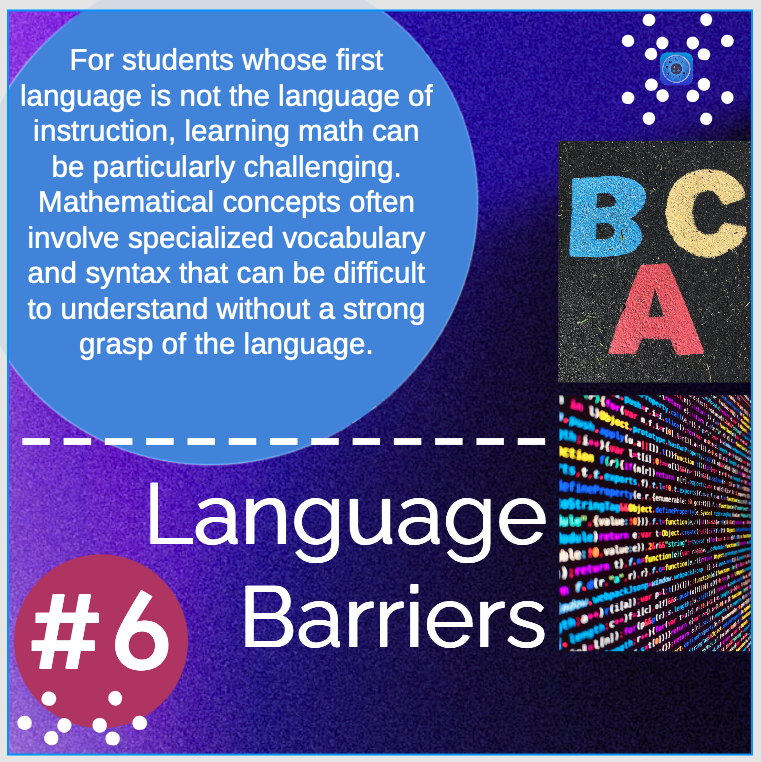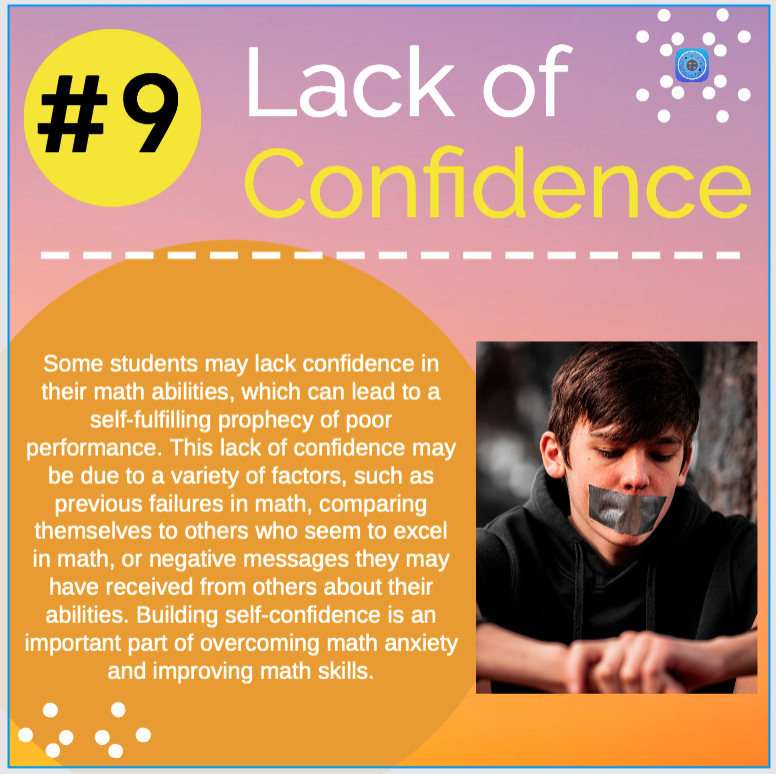Mathematics, often regarded as a formidable subject, can be a source of frustration and challenge for many individuals.
Some love it and thrive on the challenges it presents, while others find it daunting. The question of why mathematics is so difficult is one that has been asked by students, teachers, and researchers alike. In this blog post, we will explore some of the common reasons why people find math challenging and offer some tips for overcoming these difficulties. Whether you’re a student struggling to understand a particular concept or an educator looking for ways to help your students succeed, this post will provide valuable insights into the complex nature of mathematics and the strategies you can use to master it.










Strategies that can help students overcome difficulties in learning math.
- Build a strong foundation: Make sure that you have a solid understanding of the foundational concepts that underpin more complex mathematical concepts. If you’re struggling with a particular topic, go back and review the basics before moving on.
- Practice regularly: Math is a subject that requires regular practice in order to improve. Make sure to set aside time each day or each week to work on math problems and practice your skills.
- Use multiple learning resources: Don’t rely solely on your textbook or teacher for learning math. Use a variety of resources, such as online tutorials, videos, and interactive simulations, to supplement your learning and gain a deeper understanding of the subject.
- Break problems down into smaller parts: If you’re struggling with a particularly difficult math problem, try breaking it down into smaller parts and working on each part separately. This can make the problem more manageable and help you to identify the areas where you need more practice.
- Seek help when needed: Don’t be afraid to ask for help if you’re struggling with math. Your teacher, classmates, or tutor can provide valuable support and guidance to help you overcome difficulties and succeed in the subject.
- Stay positive: It’s important to maintain a positive attitude towards math, even when you’re struggling. Remember that making mistakes is a normal part of learning and that with practice and perseverance, you can improve your skills and achieve success in the subject.
For teachers:
- Create a positive classroom environment: Make sure that your classroom is a positive and supportive environment for learning math. Encourage students to ask questions, make mistakes, and help each other to succeed.
- Use multiple teaching strategies: Different students learn in different ways, so it’s important to use a variety of teaching strategies to reach all students. Use a combination of lectures, group work, hands-on activities, and visual aids to help students understand mathematical concepts.
- Provide regular feedback: Regular feedback is important for helping students to identify their strengths and weaknesses and make progress in their learning. Provide feedback on homework assignments, in-class exercises, and exams to help students understand where they need to improve.
- Differentiate instruction: Some students may need additional support or more challenging material to meet their individual learning needs. Differentiate instruction by providing extra help, advanced material, or alternative approaches to learning math.
- Use technology: Technology can be a valuable tool for teaching and learning math. Use online resources, interactive simulations, and math software to supplement your teaching and help students visualize mathematical concepts.
- Build connections to the real world: Help students see the relevance of math to their lives and future careers by building connections to the real world. Use real-world examples and problems to demonstrate the practical applications of math and engage students in the subject.
While mathematics may be a subject that poses its fair share of challenges, it is important to remember that it is also a subject of immense beauty, logic, and practicality. By understanding the reasons behind its difficulty and employing the strategies discussed, students can develop a solid foundation and build confidence in their mathematical abilities. For educators, adopting innovative teaching methods and fostering a supportive learning environment can make a significant difference in helping students overcome their math-related struggles. So, let us embrace the complexities of mathematics, appreciate its inherent beauty, and embark on a journey of discovery and mastery together. With perseverance, practice, and a positive mindset, we can conquer difficulties and unlock the endless possibilities that mathematics has to offer.

We would love to hear your thoughts and experiences with mathematics. What aspects do you find most difficult? What strategies have you found effective in overcoming those challenges? Share your stories, tips, and questions in the comments below.

